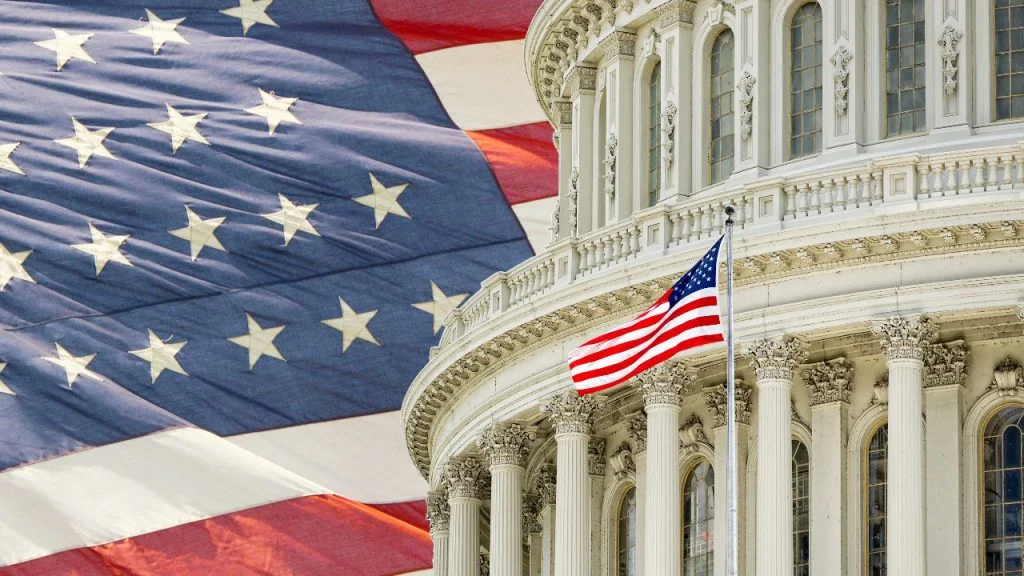Several amendments to the United States infrastructure deal have been submitted, each of which would modify a section on cryptocurrencies. Some people in the space are opposing the one that has White House backing.

Fight for the Future, a digital rights advocacy group, announced today that it would oppose an amendment proposed by Senators Mark Warner, Rob Portman, and Kyrsten Sinema to clarify the language used in the bipartisan infrastructure bill regarding cryptocurrency.
The suggested amendment receives a “resounding no” as a possible solution to the bill, which “fundamentally misunderstands how bitcoin and decentralization work,” according to the group.
Fight for the Future stated, “The original clause and the Portman-Warner amendment fundamentally misunderstand that decentralized technology is decentralized.”
“By the sheer nature of the technology, the law as worded is simply untenable, requiring many in this ecosystem to produce data that they never have and cannot get access to.”
Both the Biden administration and Democratic supporters of the amendment, according to the group, “have not done their homework on decentralized technology.”
Similar comments have been made by others in the digital sphere, with Sheila Warren, the World Economic Forum’s head of blockchain and digital assets, calling the current debate over modifications “very unique.”
“To say what is going on in the United States Senate surrounding the crypto-related sections of the infrastructure bill is an understatement,” Warren stated.
“It was striking to see wording accepted that was not technology-neutral. This has far-reaching repercussions for a young industry.”
Senators Ron Wyden, Cynthia Lummis, and Pat Toomey introduced an amendment to the Senate’s existing infrastructure bill, HR 3684, on Wednesday.
Senator Rob Portman, a key Republican participating in the bill, as well as 114 signatories from the crypto and blockchain field, including Twitter CEO Jack Dorsey, have endorsed the plan.
Senators submitted the amendment because the bill proposes stronger regulations for organizations dealing with cryptocurrencies and expanded reporting requirements for brokers, including requiring that digital asset transactions worth more than $10,000 be disclosed to the Internal Revenue Service or IRS.
It also implies that anyone involved in “validating distributed ledger transactions,” “developing digital assets or their accompanying protocols,” or dealing with mining software or hardware will be subject to increased tax reporting obligations for digital transactions.
While the Wyden, Lummis, and Toomey amendment may change the bill’s definition of a broker, allowing many players in the crypto space to avoid the additional reporting requirements, a “modified” amendment proposed by Warner, Portman, and Sinema the next day proposed exempting proof-of-work and sellers of hardware and software wallets from the bill but recommending crypto developers instead.
Some critics have claimed this modification would essentially allow the U.S. government to pick and choose which technology is acceptable in the crypto space.
The Warner, Portman and Sinema amendment received support from the Biden administration — reportedly with the exception of Treasury Secretary Janet Yellen.
With the time available to pass the infrastructure plan seemingly dwindling, many in the crypto space and some lawmakers are pushing for the Wyden, Lummis and Toomey amendment to be put to a vote while attacking the provisions in the proposal from Warner, Portman and Sinema.
Leaders at major U.S.-based cryptocurrency exchanges have called on users to contact their representatives. Binance. US CEO Brian Brooks prior to his resignation today pushed Fight to the Future’s message and Coinbase CEO Brian Armstrong urged his more than 743,000 Twitter followers to support the amendment from Wyden, Lummis and Toomey.
“This debate in the Senate started because the government sees the growing crypto industry as a source of tax revenue,” said Armstrong.
“We agree everyone must pay their taxes. There is no debate on this topic. But destroying some of the most exciting innovations in the process is unconscionable.”
